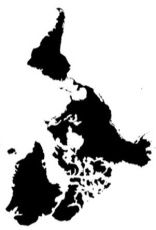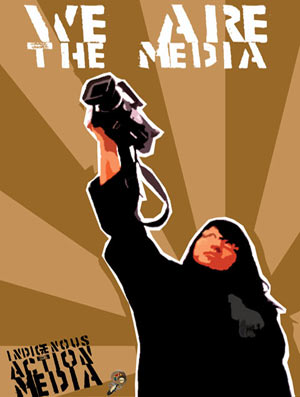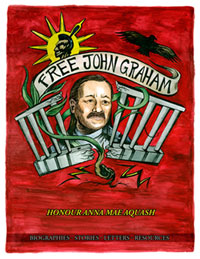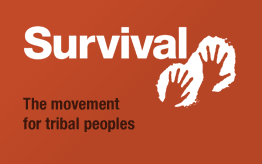 By Ena͞emaehkiw Wākecānāpaew Kesīqnaeh, Maehkōn Ahpēhtesewen
By Ena͞emaehkiw Wākecānāpaew Kesīqnaeh, Maehkōn Ahpēhtesewen
In the wake of the election of Donald Trump to the south of colonial border there’s been a blooming of discussion of fascism and the necessity for anti-fascist organizing amongst various left-wing streams of thought (anarchists, marxists, anti-racists etc.). This has only increased in the wake of his inauguration, the subsequent series of worrying (though unsurprising) executive orders that he has issued since taking the office, and the resistance that has flourished against them.
Whether or not Trump himself is a fascist is a question that’s up for debate (many in the yes side would point I imagine to claims by one of his ex-spouses that he sleeps/slept with a volume of Hitler’s speeches next to his bed). It is also arguable that several key political figures within his inner circle, such as Steve Bannon, are para-fascist. Undeniable though is that Trump and his closest advisers are right-wing national-populists, which in the context of north amerikan settler colonialism is, invariably, a form of white nationalism.
Likewise, it is undeniable that a number of explicitly white nationalist organizations have been highly motivated and emboldened by Trump and his broad popular support amongst amerikan settlers, across gender and class lines, who have seen amerika betrayed and dirtied by immigrants, “minorities,” queers, feminists and a neoliberal capitalism that has sent industrial jobs overseas. Driven by the broad feelings of white ressentiment and thirsting for a new frontier, these prophets of naked and proud white power, such as Richard Spencer, rallied to Trump’s campaign and now presidency. Whether they will continue to stay in Trump’s corner though is yet to be seen.
Additionally, even as I write this from kanada, it would be foolhardy to believe that this country is hermetically sealed from what has been going on south of the border. Prominent figures in the race to replace Stephen Harper as leader of the federal conservative party have sought to emulate Trump’s rhetoric, and have even openly called for bringing his message here. Most strikingly, and tragically of course, is the recent shooting at the Islamic Cultural Centre of Quebec City, an event which cost six lives and which was carried out by a French-speaking settler who openly espoused support for the far-right, white nationalist and Islamophobic politics of Trump, as well as Marine Le Pen in France.
In general, while the emergence of the noth amerikan far-right goes back much further than Trump, and was certainly emboldened by the election of Barack Obama as the first non-white person to the office of the president, Trump’s campaign and election has certainly led to a marked acceleration of the movement of the far-right. For the time being, naked white nationalists feel that they now have one of their own in the White(st) House, or, at the very least, someone who will led them their ear when they come calling.
I also know, and want to recognize, that many people are scared as well of the current situation. As I noted in my commentary on the Trump election, my mother called me at nearly 3AM in the morning to inform me that she felt like she was going to throw up in light of it all. Similarly, my brother, who is generally no liberal, told me that he felt as though he may have to leave his job because of the smothering atmosphere of Trumpian white nationalism in his workplace. Since the election I’ve read what seem like daily updates on the fear, depression and rage felt by many of my fellow Indigenous scholars, and many, many non-scholars, as Trump has re-activated pipeline deals, ordered the construction of a border wall to keep out our Indigenous family from south of the Rio Grande, and hung a painting of perhaps amerika’s most prolific Indian killing president, Andrew Jackson, in the Oval Office. The fear and worry being experienced and expressed by family, friends, colleagues and comrades across Turtle Island is palpable, and it would be cold, as well as disingenuous for me to bracket those feelings.
Bracketing off some of these issues though, what I want to do here is to ask a basic question: what is fascism? And, more particular to what I want to say here, what does fascism mean to Indigenous people? Is it even a useful analytic category for us in light of existent settler colonialism? Also, what does anti-fascism mean to us in light of the struggle for decolonization?





































Fascism and How to Fight It
August 17, 2009 at 1:33pm – post to Facebook
Sara Robinson has recently raised the specter of fascism in the disruptive behavior at Congressional town hall meetings regarding Obama’s health coverage plan, and proposed a plan for fighting it.
Sara dismisses all rational argument with her position by characterizing it as coming from cranks, and by ridiculing the argument that she doesn’t “understand the US is already fascist since (insert date here).” But the key point of these arguments [with Robinson] is that you cannot defeat fascism with an appeal to alliance with liberalism or ruling capitalist parties.
The idea that opposing fascism is meant to save the established order is part of the appeal of fascism. Identifying fascism, in the US context, exclusively with the right wing and the Republicans [as Robinson does] is hopelessly naive.
There are, roughly speaking, three views of fascism out there, all incorrect or false to one degree or another: 1) how fascism presents itself; 2) how competing rulers, and competing strategies and ideologies within imperialism present it; and 3) how working class revolutionaries, anarchist or socialist, have traditionally seen it. Sara, whatever her academic and intellectual credentials, basically falls into the second category.
These incorrect understandings of fascism reflect incorrect understandings of class society and colonialism as a whole.
Fascism presents itself as revolutionary, anti-capitalist and anti-communist, nationalistic and militaristic, a vanguard that welds together a “volk” into a fighting machine in which a new state and social order is created that purges weakness, sentimentality, and “alien” influences, particularly insofar as it defends “womanhood.”
Competing pro-imperialist ideologies generally speaking, portray fascism as uniquely totalitarian, nationalistic, militaristic, racist, religiously rigid and xenophobic, to which anti-gay and anti-woman have been added more recently. These pro-imperialists portray themselves as a bulwark against fascism.
Communist and anarchist analyses have tended to portray fascism as reactionary, and anti-working class, but using racial and religious scapegoating to manipulate workers into lining up behind an iconic “maximum leader.” Sexual repression, particularly latent or repressed homo-eroticism, is often emphasized. All three views accurately portray fascism as the master of propaganda and spectacle, (and as noted, as nationalistic and militaristic).
What’s wrong with or inadequate about these views? How can a more correct understanding guide successful revolutionary anti-fascist practice?
Fascists, rival imperialists, and euro/worker-centric communists and anarchists, all have, for purposes of their own, reasons to disguise the true nature of fascism, and to distinguish it categorically from other “less evil” forms of class society and oppressive, exploitative rule.
Fascists want to present themselves as revolutionary anti-capitalists (may even believe they are) in order to cement a mass base and mass participation in their effort.
Other rulers and pro-imperial ideologies or strategies want to portray fascism as evil incarnate, the bogey man in comparison to whom the others’ exploitation, oppression, militarism and repressive measures look benign or justified. They use fascism as a threat to dangle if resistance steps up — “Look how much worse things can be; we’re the best deal you’re going to get.” Kind of “apres moi, le deluge” — unite with your own bourgeoisie because fascists would be so much worse.
Euro/worker-centric socialists and anarchists are blinded to the true nature of fascism — and of their own projects — because they believe their approach will run their advanced industrial societies better (that is, deep down they still accept the empire). In some cases they are actually seeking an alliance with “their own” bourgeoisie, with whom they think they can make common cause against the fascists.
If all these views are wrong, what is correct?
People understand that there is a vital connection between imperialism and fascism. As the US has become more openly imperialist, there is a common widespread fear that “fascism” is on the immediate horizon here. The left used anti-fascist rhetoric against Bush, and the right is now using against Obama.
But to really understand what is going on, we need to take a step back to get a clearer and more valid picture of the real context of empire and class society within which fascism operates.
The Imperial Roots of “Fascism”
The European nation states where modern imperialism and fascism originated are better understood as empire states. Great Britain/UK, France, Spain, etc. were each an empire in themselves, controlling dominated people and other language groups consolidated within a territory and an economic bio-region through the leadership of the bourgeoisie in alliance with the landed gentry. Leadership necessarily implies the independent participation of other classes and strata (higher AND lower), whose efforts were cohered with and subsumed into the bourgeoisie’s project. Germany and Italy — where fascism emerged most fully and (briefly) triumphantly — both had failed to consolidate such empire states completely or in a timely manner.
The fascists set themselves the task of accomplishing what their bourgeoisie had failed to do — propel Germany and Italy into full domestic empire state status and full international participation in carving up the rest of the globe. (This is actually quite similar to what happened in the Czarist Russian empire, where the communists set themselves the task of completing the revolution the Russian bourgeoisie had proven itself incapable of carrying out, particularly in agriculture).
Fascism in Europe, particularly German and Italian fascism, set itself the task of completing the empire-state building process that their bourgeoisie had proven incapable of carrying out. For Germany, especially, this meant redrawing the map of Europe itself, and building an extensive empire within the heart of Europe. This ultimately proved intolerable to the British (and the US), who thus delineated Hitler’s Germany in particular as beyond the limits of “acceptable” imperialist behavior.
But Hitler’s philosophy, ideology and mechanisms of rule were rooted in imperialism, in lessons learned from US empire building and scientific ‘race relations,’ as well as that empire’s industrialization, modernization, and integration of immigrant workers into an “Americanized” proletariat — reservations, sterilization, white supremacist mass organizations, mass merchandising. Some of the cells which formed Hitler’s National Socialist German Workers Party were actually composed of former members of the US KKK who returned to Germany in the 20’s after the US Ku Klux Klan collapsed.
Nazi views and practices also grew out of the German colonial experience in Africa, where the German Reich had carried out a mass genocide of the Herero people of Namibia (aka German Southwest Africa). The Nazi party distinguished itself from other right wing parties and movements, however, in its willingness to develop armed power outside the alleged `monopoly’ of the state, and to carry forward independent action based on other class strata, regardless of bourgeois dictates. Nonetheless, even the Nazi party, like Mussolini’s fascists, participated in and was legitimated by the bourgeois electoral system.
Fascism: Bringing Colonial Rule Home
In general, fascism can best be understood as bringing the methods of imperial rule in the colonies into the metropole. This is true regardless of whether the societies in which it was imposed or organized had a previous imperial history. It is no coincidence, for example, that Franco of Spain launched the Falangist campaign from a colonial garrison, or that later French fascist forces were based in the settler-colonists of Algeria.
In the colonies, genocide has been the rule, not the exception, of imperial rule. “Democracy” is only for a select few settlers; dictatorship and slave labor apply to the indigenous and other colonized people. The corporate model of economic organization, later applied by the fascists to the state itself, developed in colonial enterprise. The first corporations were the colonizing corporations — British East India Company, Hudson’s Bay Company, etc. — who could bear the costs and risks of colonization because of shared and limited liability, and who exercised state power directly over the colonized territories and populations.
The mass base of participation in colonial rule came via the settler population of all class strata, who participated actively and often independently in land grabs and extermination without waiting for bourgeois legitimacy.
All this was translated to the metropole by Hitler, however he may have defined or proclaimed his system. Except that the mechanisms — dictatorship, slave labor, corporatization of the state and society, mass participation in militarism, looting and oppression independently of the bourgeoisie — were seen operating directly within the German population at large, including against its racially and ethnically defined minorities, and against its European neighbors. Hitler was intolerable to Churchill and Roosevelt, not because of philosophical differences, but because the state he created empowered Germany to remake the existing world economic order. Hitler’s genocide of the Jews and the Roma is defined as unique because it was carried out against Europeans, inside Europe.
US capital played a strong role in building Hitler’s war machine, perhaps hoping as Britain did that it could safely be directed against the Soviets. In any event, once the die was cast, and global war became inevitable, the `democracies’ showed no compunction in waging warfare on a mass scale against both German and Japanese civilians. Nor, once the war was won, did the US delay in swiftly incorporating the Nazi apparatus into the US military, space program, and national security state agencies, especially the CIA.
Colonialism is not dead history. Although most (not all) direct colonialism has been ended, colonialism persists in neo-colonialism and in settler colonial societies (like the US, Israel, Canada, Australia, etc). What is more, the imperial societies are re-colonizing the globe under doctrines of neo-liberalism, direct corporate rule via forms such as the WTO, and increasingly, the direct application of military might. Neo-liberalism plus neo-conservatism equals neo-colonialism.
However, to say there is no difference between capitalist imperialism in general, and fascism in particular, is wrong. Fascism is a form of imperialism in extremis, moved to taking desperate measures in the name of survival (often, but not only, because of the strength of its conscious opposition). The degree to which fascism must emphasize its mass appeal and its revolutionary face is a measure of the weakening of the grip of “normal” imperial and colonial thinking within the working classes, and of their allegiance to the deal they got.
It is important to understand that saying imperialism sometimes takes fascist form is not the same as attributing fascism to a “ruling class plot.” All forms of imperialism, especially modern imperialism and colonialism, have always been cross-class projects, in which working and other “subordinate” classes have always participated independently and directly, not merely under the direction of the bourgeoisie or “ruling” class.
Where there is not a revolutionary anti- capitalist and anti-imperialist threat manifest in the ranks of working and oppressed people, fascism may still appear necessary or desirable to the rulers or other strata because of other threats or other weaknesses of the bourgeoisie.
What’s more, fascist regimes are not necessarily going to ally with each other because of ideological affinities. Alliances will shift between and among ‘democracies’ and ‘dictatorships’ just as they did before, during and after World War II. So we may see US Christian fascists opposing Arab Muslim fascists or Hindu supremacist fascists. This “anti-fascism” does not preclude simultaneous fascist initiatives within their own society.
Similarly, state and bourgeois-based fascist elements may move against other fascist forces within their own society, particularly those that emphasize the anti-elitist face of fascism.
Fascism, furthermore, has always presented itself as a competing ideology for state building and economic advancement in colonized societies, in opposition to anarchist, communist and other socially-liberatory ideologies. The Japanese empire pre-World War II, for example, presented their militaristic, xenophobic imperialism as a “liberator” of Asia from European colonialism and domination. Many Latin American countries have had fascist and proto-fascist movements.
In the current period, we find fascist kernels in communities of color as well as within the white population. While such fascisms have often been subordinate to larger imperial forces, to the extent they prove capable of or interested in independent action, the fascism of imperial powers may define them as a particularly critical enemy.
What is key for us to understand, however, is that the US is a special case because the US is a settler colonial, as well as an imperial society. It has always had elements of what later became known as fascism operating within its society and state against internally colonized and enslaved populations and territories.
The mass participation and base for this has fundamentally been the white settler population (although people of color have at times been incorporated, in a neo-colonial or modified settler role).
George Jackson: “Fascism is Already Here”
This is what George Jackson meant when he said fascism is already here. It was not rhetorical hyperbole or meaningless substitution of ‘fascism’ for ‘capitalism.’ The Black colony and especially Blacks within the prison system (the new plantation /reservation /concentration camp) lived and live under conditions of fascism (including a cross-class racist alliance of white supremacist prisoners and guards who uphold the rule of the bourgeoisie and its state).
But this is not true only in the prisons. The channeling of Black youth into prisons, parasitic criminal organizations, the military or neo-colonial regulation systems is a manifestation of fascist-style domination and incorporation of a threatening population.
The fundamental basis of “white privilege” is that working people of European descent are spared such fascist methods of rule, so long as they remain loyal to and identify with the oppressors.
There are substantial mass strata, including among white workers, petty bourgeois and employees in state security forces such as the prisons and police, for whom fascism of the more modern, “European” form has appeal, as well as sectors of the bourgeoisie and of the bureaucratic governing class who are accustomed to and predisposed towards fascist style rule.
The turn to fascism does imply a change in the composition, structure, powers and rationale of the state, and in the forms of domination and exploitation of the “metropolitan” (oppressor nation) working class. The types of oppression and exploitation that have been directed at the (internally) colonized population begin to make themselves felt against the settlers as well, even as they are being courted and propagandized to adopt a new and more intimate and totalitarian identification with the rulers and empire.
I think this does describe what is happening in the US today. The process of fundamentally transforming the nature of the US state, not merely quantitatively in terms of repression, but qualitatively in terms its fundamental modes of operation and social contract, is happening primarily from the top down – orchestrated by the neo- and paleo-cons and a supportive faction of the bourgeoisie. Only secondarily is it driven from the bottom up (more so by clerical fascist forces and by neo-Confederates closely allied to the rulers, less so by the white proletarians, declassed and petty bourgeois elements who are drawn into openly and expressly neo-nazi and other armed and violence prone formations). What we are seeing today (and perhaps this is the phenomenon Sara is alarmed about) is an integration of those groupings.
But corporatization is proceeding within the Obama-led state apparatus as well, ranging from the cutting of deals on financial regulation with financial giants, and on health care with Big Pharma, to the incorporation of local police into Homeland Security-led border enforcement or the use of the economic crisis as a club to force the privatization of public education.
That means we must seriously prepare for situations of much more naked repression, perhaps akin to those which pertain in the colonial and semi-colonial areas — the dirty war in Argentina, the Pinochet regime in Chile, the death squads in Central America, the Israeli Occupation Forces in Palestine, etc. That such repression may sometimes target open, self-proclaimed fascists does not negate its own fascist character. Since the goal is stabilization in crisis, threats to stability are unwelcome.
Economic Crisis of the Empire and Industrialism
These statist, pro-imperial forces see quite clearly that the economic and environmental crises facing their system require a re-incorporation of mass support on a different basis than the old imperial bribe. They also foresee and openly promise a period of `endless war’ and increasing militarization of the entire society.
Less openly, but no less relentlessly, they are girding up for a military showdown with China. The prospect of taking on that battle, in the context of a dwindling economic pie of which they are taking a larger share, necessitates both increased repression and inventive methods of obtaining consent, for which “fascism” is as good a code name as any.
The reason that it’s important to consider whether a fully fascist state is on the horizon in the US is not a matter of semantics but of survival. Or perhaps more currently, we need to understand exactly how the rulers and retail fascists are transforming the nature of the state, and what initiatives will be undertaken by or allowed for non-ruling class forces to push forward fascism independently of the rulers.
What is vital is seeing how what is happening is rooted in pre-existing cross-class alliances that must be smashed if we have a chance to turn the crisis into an opportunity for a liberatory transformation of this society and state. If people see anti-fascist struggle as a means to return to a mythical democratic, egalitarian past, we are indeed doomed.
In a certain sense, whether we call it fascism is immaterial. The question is, what room do we have to maneuver, what timetable do we have to operate on, what methods of organization and struggle are appropriate or likely to be successful in the current period? The timetable and nature of organizing, as well as the means of struggle appropriate and necessary to pursue, will be affected by the nature of the state and the extra-parliamentary fascist forces we confront. So will the kind of alliances we can make and the type of organizations we build.
Withstanding Fascism & Brutality
Fascism, however we “define” it, has meant a particularly brutal and harsh form of governance within imperial metropoles, a much more active pursuit of genocide, a more naked and totalitarian form of domination of labor and other mass organizations. This is not a linguistic question.
Other forms of social and political organization are also capable of excesses, but fascism distinguishes itself by seeking to reconstitute the individual personality and the state in a ‘revolutionary’ fashion. In the third world, imperialism has long operated through dictatorial, militaristic puppet regimes that carried out bloody repression. Whether those can correctly be called “fascist” is arguable — they are responding to pressures from above and outside their own societies and often have a limited mass base within them.
But if we are facing anything close to that type of repression and death squad activity, we need to adjust our organizing dramatically.
I think the current political context in the US, whether we label it fascist or not, calls for a whole range of things connected to the idea of more clandestine struggle (I am not thinking necessarily or exclusively of illegal or armed action here). Nonetheless, we do need to incorporate the same sense that “from-below” fascist forces have long grasped — that independent political action must make use of all forms of struggle and all means of exerting countervailing power.
The abiding lesson of the previous history of fascism in power is that the alleged state monopoly on armed power is a polite fiction aimed at disarming the oppressed. Particularly in the US context, where armed settlers operated independently of the state to capture land, suppress slave rebellions and other colonial functions, it is fatuous to believe that only the state acts as an armed agent. Class fractions, regional networks and other social elements have always been armed and used arms to advance their interests in the U.S. Pacifism is exclusively a pathology of the left. We need to develop the capacity to defend ourselves and our communities.
We need to strategize based on an understanding that mainstream media work is almost entirely pointless, at least as currently conceived. The transformation of “journalism” and “entertainment” into corporate/state propaganda is pretty much complete. Simply turning back the final straw, after the camel’s back has been broken, is not enough. Previous court rulings have made it clear that freedom of speech and the press are essentially protected only for corporate interests.
Alternatives are happening — developing our own media, pirate radio, webcasting, using indymedia — but remember, the Internet is closely monitored and subject to being choked off. Similar to what happened under Clinton, the Democrats are moving to eliminate Pacifica Radio as a medium of grassroots dissent.
We need to cultivate relationships with media that serve people of color. There was a significant difference between the attitudes of people of color towards the Iraq war and coverage of the war in POC media (even bourgeois, mainstream, corporate POC media), and those of the white population and the general media. In NY, Chicago, LA, Atlanta etc. there are Black, Spanish-language, Asian and other “minority” oriented media outfits that still provide a little room and outlet that is unavailable in general-audience print and broadcast media.
We need to focus more energy on less public forms of organizing than stale and fruitless rallies and demonstrations. I think we need to organize deeper and more sustained initiatives of our own away from public scrutiny, not simply reacting to state and fascist provocations.
We need to listen more, as a means not only of intelligence gathering on the enemy, but also of understanding what’s on the minds of the people we want to work with and among. We need to develop community-based grass roots anti-racist and anti-empire work that has endurance, and that rewards people in the doing of it.
Anti-fascists can never abandon confrontation with nazis, but public venues are going to be increasingly controlled and subject to massive repression. The current quiet of the anti-war movement in the face of ongoing war has to do partly with the hold of illusions about the Democrats but also to the inefficacy of street demonstration in stopping war and the effectiveness of militarized police in disrupting anti-corporate, anti-globalization street actions.
We need to think about methods of infiltration and subversion of state and fascist initiatives, as well as counter-organizing a base for anti-racist culture and resistance among people who would otherwise be drawn to the nazi “solution.”
Organizing Below the Radar
We need to build a legal/self defense component into all our work, anticipating busts, frame-ups and harassment. We need to build stronger outside networks of support for people locked down, materially and otherwise. There needs to be thought about safe houses, cultivation of supporters who never do anything public to identify themselves with the anti-racist and anti-fascist movement, secure means of covert communication, transportation and release and dissemination of information. In other words, we need to adopt some methods of organization that are better suited to conditions of occupation or fascism.
To the extent we can get at all ahead of the curve on this, it will be a lot easier to do, and a lot likelier to survive the repression. We need to think about building redundancy in all those mechanisms.
Organizing and outreach into the prisons and the military are vital. These spheres, along with workplace organizing, have always had some of the characteristics of occupation or fascism that impede open organizing. They are vital areas in which to work. The degree of state and bourgeois repression applied in these arenas under “normal democracy” are a measure of their strategic importance.
They are an important proving ground of our ability to organize under such conditions as well as our capacity to craft a message and practice that engages the people we want to reach. This is also true for work with high school students, for many of the same reasons (especially as the military increasingly penetrates the schools).
One key to understanding fascism is to grasp, and counter, the appeal fascism makes to women. The male-dominated left tends to discount the revolutionary potential of women, the need for a strategy to deal with the role of violence in the lives of women and children, and the efforts of fascists to present themselves as the answer to women’s problems. A fuller discussion and an attempt to develop practice based on a deeper understanding of those issues must take place in a sustained way.
The state has moved into this arena in various ways. The use of Afghan women as justification for waging war on Al Qaeda, the Taliban and Afghanistan and Pakistan is one clear example. Another notable one is creation by the Pentagon of a network of organizers out of “army wives,” whose job it is to maintain morale and support for the war efforts among the families of the troops. Clerical fascist groups have always been very strong and effective in this regard, appealing to both men and women around a “kinde, kuche, kirche” (children, kitchen, church) sex-role definition of[women in] the family, augmented in the modern period by appeals to women’s (racial) self-defense and women’s leadership in anti-abortion and related struggles.
Progressive faith-based groups, some of whom are hard-core pacifists, must be addressed in an anti-fascist strategy, just as “White Rose” Catholics formed one base of anti-fascist resistance in Hitler’s Germany. Such groups also have a long history of civil resistance, sanctuary-type activities regarding unjust immigration policies, and otherwise breaking the law or doing secret work for reasons of conscience. I think we might be able to learn a great deal from them.
We need to begin operating as if fascism is already fully in place. This is not defeatism, because only acting in this way will we be able to turn the dynamic around and use the crisis as a basis for a truly revolutionary transformation of society. We similarly need to start working with the understanding that it is already too late to reverse global warming in the short term. We need to build community-based, anti-capitalist efforts to live under the harsh environmental conditions that will prevail over the next decades. Anything less is suicidal. In other words, we need to take the current political, economic and environmental crises as the breeding ground, not for fascism, but for our own independent, revolutionary anti-imperial offensive!
I invite responses and discussion of these ideas which continue to appear in the pages of “Turning the Tide: Journal of Anti-Racist Action, Research & Education,” available from ARA, PO Box 1055, Culver City CA 90232 or on-line at http://www.antiracist.org and http://tideturning.org.